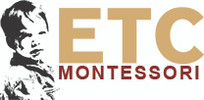
Knowledge, in itself, alludes to the fact that we understand something to such a degree that we are no longer burdened by the chains of ignorance. By the same measure, it is safe to assume that if knowledge results in understanding, then lacking knowledge means we also lack the ability to claim competency.
Once students achieve knowledge, understanding, and a level of competence, they begin the process of thinking about thoughts, known as metacognition, and controlling their cognitive processes. This new level of thinking brings with it the duality of objectivity and subjectivity.
Since our knowledge base is made from a collection of experiences based on these two concepts, it’s important that we take the opportunity to identify each of these truths. Our subjective experiences have a direct bearing on how we perceive the world around us. Our objective experiences, on the other hand, are far more difficult to comprehend and employ. What makes objectivity incredibly difficult is the idea that being objective requires the ability to transcend one’s own views and move beyond the inevitability of bias and subjectivism that burden us. Therefore, true objectivity is, logically, impossible because it involves shedding one’s very own persona. No person has the ability to function in a truly objective manner, since each of us is made up of a collection of experiences that shape the way we see our world. It is our individual conceptions that determine how we understand our surroundings.
Human brains are incredible. As educators, we directly influence this subjective knowledge, which we need to cultivate in our students. Young adolescents are often characterized by a state of subjectivism that surrounds them. They are in a constant state of exploration, seeking not only knowledge but also, for the first time, looking to find their place in the world. Their brains are incredible instruments open to ideas. They seek fairness, openness, and most of all, a way to belong.
Over time, evolution has refined the functions of the brain, eliminating all unnecessary roles and distilling it to one main function – survival. What adolescents seek to understand has a direct connection to the ability to survive. Their thoughts and actions will be determined by their backgrounds, which, in turn, are shaped by their upbringing and, ostensibly, the culture that surrounds them. They have spent the first twelve years of their lives developing a personality. Now, they enter the stage that will refine the persona they have, and exposure to a variety of opinions and points of view will be the determining factor of how they will "survive" in the world.
For all practical purposes, I will refer to this subjective outlook of the world as the biases that will ultimately be instilled in their way of thinking. Biases can be positive or negative, and every one of us has and breeds preconceived notions based on how we acquire knowledge, as well as the environmental factors to which we are exposed.
Enabling young adults to understand their biases allows them to accept who they are, liberating them from the burden of being pinned down. It allows them to understand their condition and their identity. Subjectivity and biases allow them to seek their place in the world. Biases are not something that we should seek to subjugate or suppress in them. Gaining effective understanding comes from accepting those biases and placing them in proper context. This, in turn, allows them the ability to seek solutions to the challenges they face regularly.
If we accept that true, objective knowledge does not exist, how can we expect young adults to employ objective knowledge when the originating arguments surrounding them are subjective? Human beings know and interpret situations through their social interactions, their personal experiences, and their understanding of events through their historical context. Therefore, true knowledge and the interpretation of this knowledge are unique and highly individual. Some of this subjective knowledge we are aware of, while a large portion of it we have no clue exists. We view the world, and we understand it based on the belief that what is true for us is also true for others. We all suffer from this type of myopia. For young adults, this myopic condition is even more pronounced. To be truly conscious of even a very small percentage of all the information that our brains take in would be overwhelming. The reality is that our brains take in everything presented to us, but only stream the information that best fits the model of the world that we have come to create and accept. This is the world made up of our subjective knowledge.
Since gaining an understanding of a concept means that we must use our subjective knowledge as a measuring tool, others' biases are always ripe for judgment. Yet, we rarely afford others the same privilege. Returning to my theory of the brain being designed for survival, this organ, in turn, is biased towards protecting us and our own beliefs by avoiding having to deal with contradictory ideas. Therefore, our brains have an incredible amount of interest invested in ignorance. It is in our best interest to avoid seeing our own mistakes. It is far more beneficial to justify our actions, understandings, beliefs, and decisions and prove to others we are right and they are wrong. Because of this, we look for and gravitate towards those people or ideas that confirm our own beliefs, philosophical statements, and opinions are contextually true. We exclude and denounce those that run contrary to our own. Our biases are the canvas upon which we are able to paint our observations, regardless of how insignificant or inaccurate they might be, and weave the grandiose picture of generalization. As a result, we are able to pass judgment on others and, more importantly, affix our label on their beliefs. Simple, singular events that provide opportunities for subjective knowledge become objectified opportunities by which we simplify our world and attain understanding. Without an understanding of others' biases, we are able to assign blame and attribute failure to personal shortcomings, rather than situational circumstances.
Do we need objective knowledge to understand something? No, society has done marvelously through the eons by employing every aspect of subjective knowledge. With so much at stake, are we able to deprive young adults of the opportunities they need to gain perspective? If we, as educators, fail to provide them with those opportunities, will it ultimately result in our downfall as a species? Life is not an experiment in a test tube. Living is a process that falls beyond our scope and true understanding. It’s a dirty job, and whether we like it or not, we are all assigned to do this job. The way we see our world cannot be defined as right or wrong, evil or good. The biases we carry are there to help us survive. They do, however, represent a fundamental method for simplifying the world around us while at the same time making it more understandable and manageable. Adolescents need to be exposed to a plethora of ideas that counter their own cultural biases. Perhaps, through this process, we can begin to "break down the brain" and allow for tolerance, understanding, and empathy.

